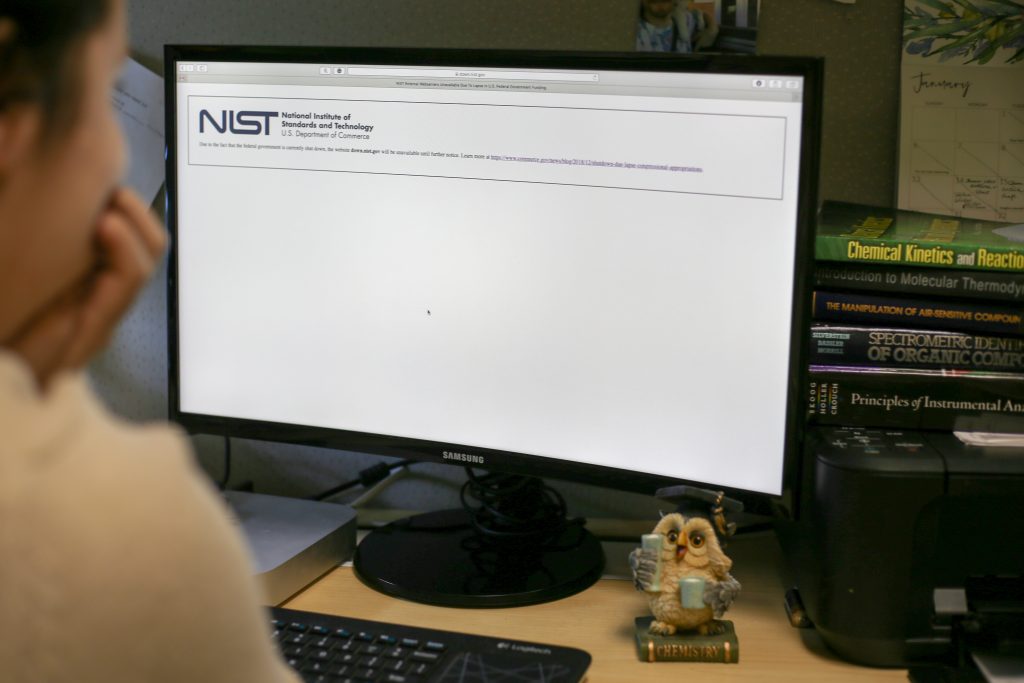After 35 days, the longest federal government shutdown in United States history is over, but its impacts on Binghamton University’s campus remain.
The shutdown, which began in December after Congress and President Donald Trump failed to come to an agreement on border security spending, shuttered multiple federal agencies, including the National Science Foundation (NSF), the National Institute of Standards and Technology and the Environmental Protection Agency, all of which regulate and fund research at BU. Although the agencies have reopened, they face a significant backlog of emails, grant applications and approved funding that needs to be sent out to colleges and universities across the country.
According to Bahgat Sammakia, vice president of research at BU, it could take months for research funding and grants to start being processed on schedule again.
“The NSF, for example, by being on hold, are not working on future grants,” Sammakia said. “They aren’t reviewing new proposals until the government is open, which means when they do, there will be a big backlog.”
This poses a threat to the University, which classifies itself as a research institution and receives about half of its research funding from federal agencies. Faculty are required to do research to obtain tenure and continue working at the University, and students, particularly graduate students, are expected to conduct and assist with research to graduate. According to Sammakia, this puts the University in a difficult position.
“We can’t start spending on research until money is released,” Sammakia said. “Faculty and students are in an awkward situation where they were ready to do this work and aren’t able to do anything. It’s just devastating.”
Although research funding is the primary issue, the shutdown also impacts the distribution of peer-reviewed articles and communication between researchers and federal agencies. In a Dateline statement released on Jan. 22, BU President Harvey Stenger wrote that the University was trying to absorb unreimbursed research expenses.
“This has resulted in real hardship for faculty who rely on these grants, and particularly for those graduate students and post-docs whose salaries are funded by them,” Stenger wrote. “As of this week, the University is awaiting reimbursement from the NSF of over $300,000, with the amount growing each day the NSF is shut down.”
But the University’s efforts to reimburse researchers can’t help researchers who have yet to see their research funds finalized by federal agencies. Scott Schiffres, an assistant professor of mechanical engineering, received word that his proposal is likely to be funded, but is waiting for the award to be finalized.
“I’ve been fortunate to have startup funds left while the award is finalized,” Schiffres wrote in an email. “While this lack of funding is definitely frustrating, it is also troubling that many agencies fund[ing] research are not reviewing or discussing research, so it will slow the process for getting new grants as well.”
Other professors haven’t seen their research impacted, but have experienced other difficulties. Omowunmi Sadik, a professor of bioanalytical and environmental chemistry, said she’s had some difficulty getting in contact with program managers at the Environmental Protection Agency.
“I can imagine that if this continues, we will feel the impact,” Sadik said.
Others, such as Lynn Schmitt, a fifth-year graduate student studying inorganic chemistry, faced challenges while trying to access federal databases and resources.
“During the shutdowns, often popular scientific databases such as the one run by [the National Institute of Standards and Technology] and reference data such as spectra are inaccessible and we have to turn toward other sources,” Schmitt said. “These databases are often referenced by students in laboratory reports and essays.”
Federal agencies are beginning to sort through the backlog and update their websites, which were inactive during the shutdown. However, they may have a limited window of time to do so. The bills passed to reopen the government will only fund the agencies for three weeks, and if Congress and Trump fail to reach a compromise on border security funding, the federal government could shut down again. According to Sammakia, if the shutdowns continue, the impact on research could be devastating.
“Some of the damage will be irreversible,” Sammakia said.



